So you’ve successfully organised an event, and now you want to know what your attendees thought about it.
This article will cover…
- Why you should do a pre-event survey
- How to survey attendees on the day
- Why a post-event survey is crucial
- Which event survey tools are available
- What you should do next
Time to get some valuable insights that’ll help you become an event planning superstar.
Billetto is a ticketing platform that helps you manage, promote, and host events. Set up an event page and start selling tickets in 5 minutes.
CREATE YOUR EVENT >>
Why should you do a pre-event survey?
There are many advantages to conducting a survey before the event has even started. Here are some of the key reasons you should carry out a pre-event survey.
1. Focus your event marketing
There is a good reason why all companies ask where you heard about them. It tells them where to focus their marketing efforts.
Discover where your target audience hangs out and how they hear about events. That way, you know where to spend the majority of your event marketing budget.
2. Attract more attendees
Put out feelers to see what makes people sign up for an event like yours. Is it networking opportunities? Maybe it’s a particular performer or speaker?
When you know what the deciding factors are, you’re in a much better position to market your event and attract more attendees.

3. Make it a great experience
You can also probe people to see what they like and don’t like about similar events. Maybe they have a pet peeve or have had an extraordinarily good experience in the past.
Find out what makes an event special (and what doesn’t) so you can incorporate that into your own. It will ensure that your event attendees remember your event—and come back.
Tip: Use this pre-event survey template to find inspiration for questions to ask before the event.
Why should you do an onsite event survey?
You will probably have a lot to do on the day of the event. But that shouldn’t stop you from asking for opinions. Here are some reasons why it might be a good idea.
1. Solve immediate problems
Ask your event attendees what they think of the event so far. They’ll usually give you their honest opinion…unless they’re extremely British.
If there is anything that could be better, you will now have a chance to do something about it. It will show your attendees that you care, and that’ll reflect on their overall experience.
2. Make it part of the event
Polling your event attendees can easily be integrated into the event itself. You can create incentives for people to participate and make it a fun activity.
Onsite event surveys are also an additional opportunity to collect attendee information. Depending on your event, this could also be of interest to your sponsors.
Tip: Look at these interactive examples of real-time event feedback to get your creative juices flowing.
Why should you do an event feedback survey?
A follow-up survey after the event will give you the most useful feedback from your attendees. Here are the reasons why it’s an absolute must.
1. Gauge event success
The first and foremost reason you should survey your attendees is to see if the event was a success. It will help you evaluate your event and report back to any stakeholders.
2. Improve future events
Feedback from the event will also give you inspiration for future events. Ask your attendees what could have been better. They will give you all the ideas you need.
3. Boost event marketing
An event survey is a good opportunity to market future events. Ask the guests if they would consider attending similar events in the future. Then offer to sign them up to your mailing list.
Tip: Check out these sample questions you can include in your post-event survey.
What free event survey tools are available?
There are a number of great survey tools out there that you can use for free. There are also paid options available, which will give you even more detailed insights.
1. Survey Monkey
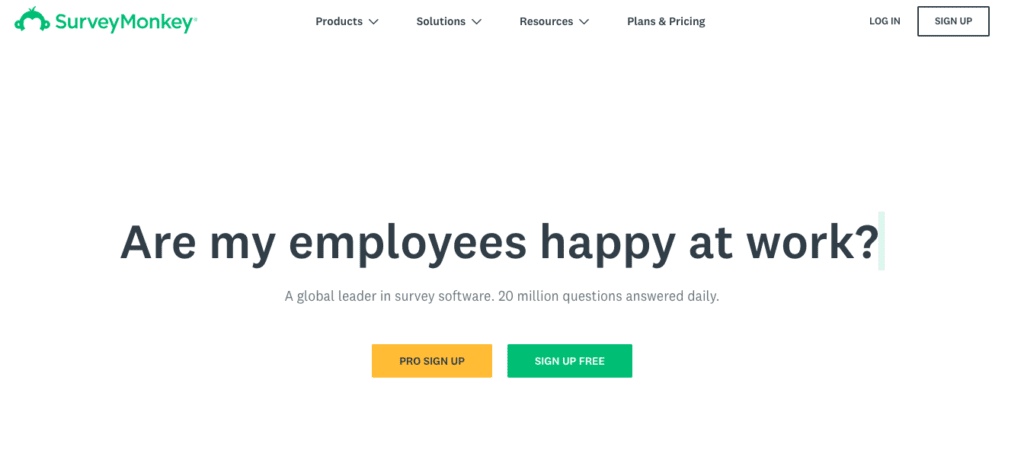
Survey Money is the most well-known survey tool out there. The free version gives you 10 survey questions and a cap of 100 respondents. It can be embedded on your event website.
2. Typeform
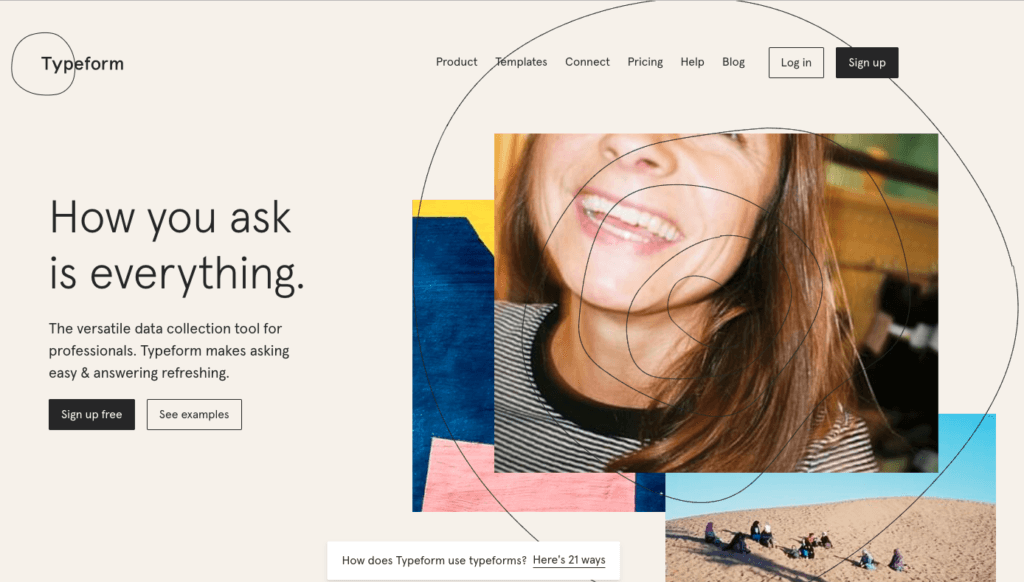
The best things about Typeform is that it offers a very clean and tidy survey interface. Similar to Survey Monkey, the free version caps survey questions at 10 and the number of respondents at 100.
3. Google Forms

Google Forms let you create unlimited surveys and send them out to as many respondents as you want. All data is automatically stored on your Google Drive.
4. Survey Gizmo

The free version of Survey Gizmo limits you to 100 respondents. That’s great for small events, but not so for big conferences. But it does offer unparalleled data reporting.
5. Survey Planet
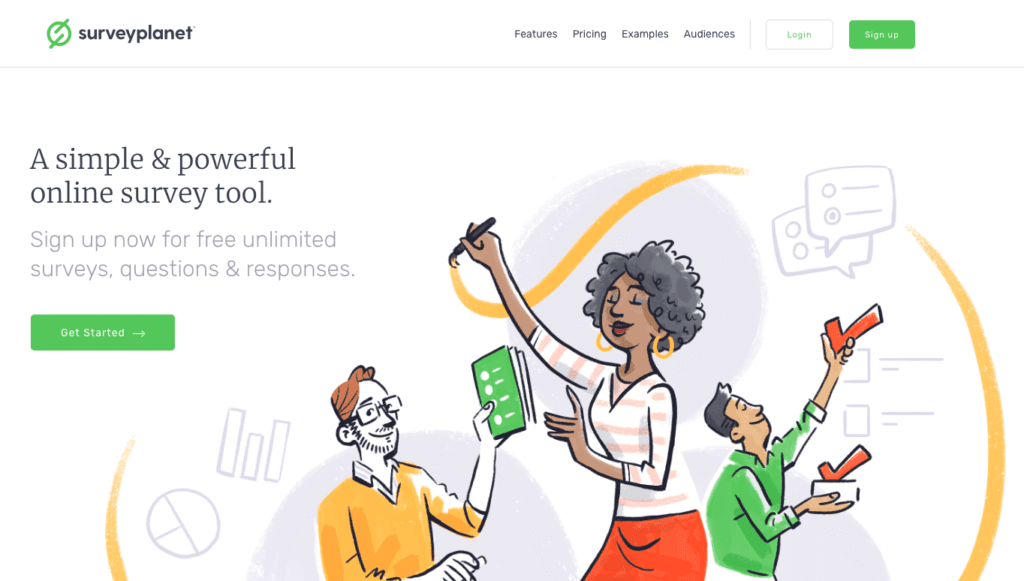
This is a lesser-known yet great survey tool. Like Google Forms, Survey Planet gives you unlimited surveys, questions, and respondents.
How to put together an event survey
You can read this article, which explains what to think about when you create an event survey.
All the survey tools will have free templates you can use to get started. That’s very helpful because you’ll already have some good questions to get you started.
But don’t rely exclusively on these pre-written questions. They are necessarily generic, so you should tweak them in order to make them unique to your event.
Multiple choice questions
The most common way to conduct a survey is to ask multiple choice questions. These make it easier to quantify the feedback you’ll get.
The main drawback of multiple choice questions is that they limit the kind of answer respondents can give.
Here are the different kinds of multiple-choice questions you can ask your event attendees:
- Single answer: Respondents can only choose one answer.
- Multiple answers: Respondents can choose more than one answer.
- Rating scales: Respondents can e.g. rate a question from 0–10.
- Likert scales : Respondents can choose answers like “Strongly Agree” or “Somewhat Agree.”
- Matrix questions: Respondents will see a series of “Rating” or “Likert scale” questions.
- Dropdown questions: Respondents can scroll through a list of possible answers.
Tip: Read more about the different multiple choice questions.
Open-ended questions
You also have the option to ask your event attendees open-ended questions. It will give you a more nuanced picture of how they perceived the event.
However, the disadvantage of these questions is that they are hard to quantify. Therefore, it’s wise to have a mix of both multiple choice and open-ended questions.
Demographic questions
Finally, you also have the option to ask your event attendees demographic questions. These can include details about their professional background and level of income.
It can be useful for concentrating your promotional efforts on reaching the right audience. Also, demographic data is very useful for fine-tuning your marketing strategy.
Billetto is a ticketing platform that helps you manage, promote, and host events. Set up an event page and start selling tickets in 5 minutes.
CREATE YOUR EVENT >>
In sum
Remember that your event attendees are not the only people you should poll. It can also be helpful to send surveys out to any staff, volunteers, sponsors, and speakers.
You can also incentivise people to respond by, say, offering them a discount on their next event ticket.
It’s also a good idea to keep the surveys anonymous. That way, you’re more likely to get an honest answer.
Good luck with your event survey. Let us know how you did in the comments below!

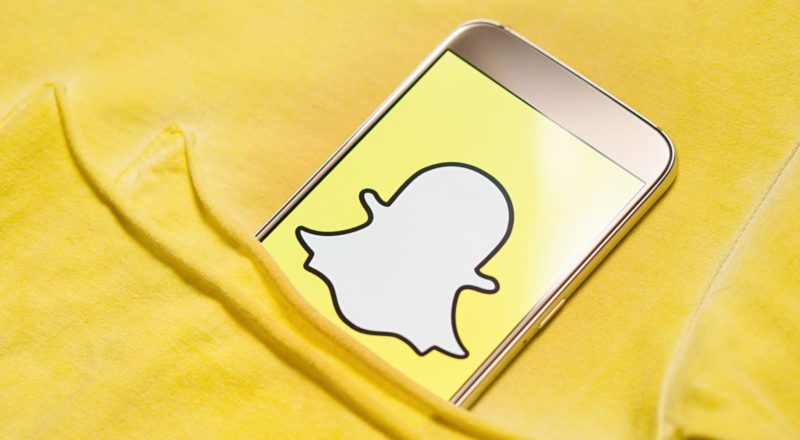
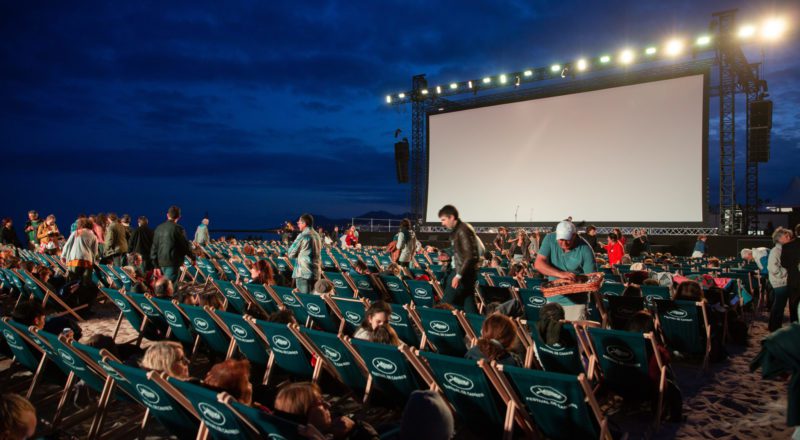


Leave a Reply